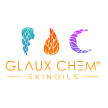10 Things That Should Never Go Near Sensitive Skin
Do you want better skin? Even if you're not prone to redness, you'll want to avoid this list of things that should never go near sensitive skin.

Being able to get a nice, healthy skin tone isn't easy—especially if you're one of the millions who have sensitive skin. When you have sensitive skin, just about every little thing can spark a breakout or make your skin inflamed, itchy, and red.
Even getting skincare for sensitive skin can be difficult, primarily because so many things that should never go near sensitive skin find their way into skincare products. Chemical additives in cosmetics are often the very reason why people with sensitive skin can't seem to keep their skin calm or find a product that works well for them.
Trying to find a product that won't irritate sensitive skin isn't easy, considering how many companies tend to be hooked on products. It's become such a problem that some companies, such as GLAUX CHEM, have started to create organic, additive-free skincare products for people with very sensitive skin.
The easiest way to improve your skin tone is to avoid the things sensitive skin typically can't handle. Most people who have sensitive skin don't realize it until they see what happens when they stop letting certain things near their skin. Even those who have "normal skin" will find that keeping away from these things will help them look better than ever.
Alcohols
Alcohols come in a variety of different names when they are added to skincare products, but no matter what kind of alcohol you’re talking about, it’s safe to assume it’ll rank among things that should never go near sensitive skin. Alcohols can cause mild burns in hypersensitive skin, and also dry out normal skin and cause an imbalance in natural oil production.
Ammonium Lauryl Sulfate

Ammonium Lauryl Sulfate is the ingredient that gives most shampoos, toothpaste, and soap the foaming action that lets you know you’re lathering well. Though we all love lathering up, the truth is that this ingredient really isn’t very good for your skin—even if you have normal skin.
Along with being a serious drying agent, Ammonium Lauryl Sulfate is known to irritate skin. If you tend to use lathering ingredients for most of your skincare routine, it’s possible that your acne could be product-related.
Apricot Kernels
Most natural skincare products will use seeds and other nuts to help exfoliate dead skin, and this includes ground up apricot kernels. At first, this seems like a pretty good idea, since exfoliation is crucial to getting a healthy glow.
However, when it comes to sloughing off dead skin, there are a few things that should never go near sensitive skin—and this includes ground up kernels and pits. The jagged edges of ground-up fruit pits tend to be too much for sensitive skin, and will result in abrasion.
Synthetic Fragrances
Sure, that facial cream may smell a bit better with perfume added to it, but that doesn’t stop synthetic fragrance from being one of the most irritating things that should never go near sensitive skin. The alcohols and essences in fragrance tend to dry out sensitive skin, or worse, further inflame the skin that’s already dealing with dryness.
The sad fact is that many products will smell foul if they don’t have fragrance in them. That’s why it’s often better to go organic when it comes to skincare. Natural products, such as the Face and Body Moisturizing Oil from GLAUX CHEM, typically smell fresh without the need for faux fragrance additives.
Sodium Laureth Sulfate
Sodium Laureth Sulfate is Ammonium Lauryl Sulfate’s sister chemical, and like its ammonium-based counterpart, SLS works as a foaming agent. This agent often helps us determine whether we are washing our faces with enough product, but at the same time, causes some serious irritation and redness of sensitive skin.
The worst part about this ingredient is that it gets rid of the protective oils on skin, which in turn makes inflammation way worse. A better option for sensitive skin is a skincare routine that emphasizes moisture and keeps those healthy oils intact.
Mineral Oil

Mineral oil has long been used as the main ingredient in highly moisturizing skincare products and creams. In fact, baby oil is nothing more than mineral oil that has a touch of fragrance added to it. Surprisingly enough, experts call mineral oil one of the worst things that should never go near sensitive skin.
Mineral oil, Vaseline, and other petrochemicals are known for locking in moisture... but also for causing buildup, which in turn, can cause acne. Some studies even linked petrochemicals used in cosmetics to cancer. Even if you don’t have very sensitive skin, hearing these findings would be enough for anyone to think twice about them.
Phthalates
This ingredient is one of the few things that should never go near sensitive skin, nails, or really any other part of the human body—but sadly, remains very common in all kinds of cosmetics. Phthalates are often used to help make certain cosmetic consistencies feel better or to help moisturizers better penetrate the skin.
The perks of phthalates in your cosmetics, though, fade when you hear that they are known to cause cancer, worsen eczema, and cause allergic reactions. Europe recently banned phthalate use in cosmetics as a result.
Bismuth Oxychloride

Bismuth Oxychloride is one of those chemicals that sounds nasty, and lives up to the way it sounds. This compound, which is found in both skincare products and cosmetics, is a known skin irritant that can cause blistering, itching, burning, and stinging when applied to sensitive skin.
On regular skin that doesn’t have allergic reactions, this ingredient is mostly known as a mineral makeup base. It’s one of the things that should never go near sensitive skin, if only because it is just too rough for delicate skin to handle.
Methylisothiazolinone (MI)
Methylisothiazolinone (MI) is one of the most common ingredients that can be put into skincare, and it works as a preservative. The issue with MI is the sheer number of people who have allergic reactions to this ingredient. Methylisothiazolinone was tied to one of the worst allergy outbreaks in recent history.
Around 10 percent of all people are allergic to this ingredient, and several groups have considered banning it as a result. MI is one of the most harmful things that should never go near sensitive skin, especially if you have allergies.
Formaldehyde

If you ask a lot of toxicologists, they’d tell you that this chemical tops the chart of things that should never go near sensitive skin—or any skin, really. It’s a known cancer-causer and has been linked to rashes, dryness, and eczema.
Formaldehyde is so toxic, they no longer even use this preservative as an embalming agent. Sadly, the FDA still believes it’s okay to use formaldehyde in cosmetics, which means people still use products with this ingredient as part of their skincare routine.
With all the talk about chemicals, it’s easy to assume that you will need at least one or two additives to make a good skincare routine. However, this really isn’t true. Being exposed to bad ingredients is a shortcoming of the company and the product—not an inevitability.
GLAUX CHEM proves that you can have great skincare, without all the skin-irritating gunk. If you have sensitive skin, it may be time to look for products that are pure enough to work naturally with your body.
About the Creator
GLAUX CHEM®
Our mission is to help those with skincare needs by developing natural products that are inspired by Mother Nature. Learn more at https://www.glauxchem.com.







Comments
There are no comments for this story
Be the first to respond and start the conversation.